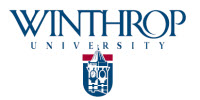Below is a summary of the abstract you submitted. Presenting author(s) is shown in bold.
If any changes need to be made, you can modify the abstract or change the authors.
You can also download a .docx version of this abstract.
If there are any problems, please email Dan at dar78@pitt.edu and he'll take care of them!
This abstract was last modified on March 16, 2021 at 1:16 p.m..

Knowledge of bacteriophages and their use has been around since the beginning of the 20th century, but until a more pronounced understanding of individual genotypic functions are known, their use is limited. This set of research has been performed in cooperation with the Howard Hughes Medical Institute’s Science Education Alliance (SEA) GENES program. The goal of SEA-GENES is to generate expression libraries for phage genes, test the effects of these genes on bacterial host phenotypes, and investigate possible targets in the host proteome of these genes. Our phage of interest, Cain, is a cluster K6 temperate bacteriophage with 102 genes of which only 30 have a hypothesized function. Using molecular cloning with Escherichia coli and phenotypic assays, we are seeking to determine each individual gene's function. Thus far, we have successfully amplified 25 Cain genes, cloned 22 of these genes into the pExTra expression plasmid, and discovered that expression of four of these genes is cytotoxic to the host Mycobacterium smegmatis. Of these cytotoxic genes, two have predicted function – tail terminator and DNA polymerase II exonuclease – while two are of unknown function. We are currently expanding this research to include more Cain genes, with the ultimate goal of adding to the growing knowledge of host-pathogen interaction with potential applications in the therapeutic and biotechnological fields.

